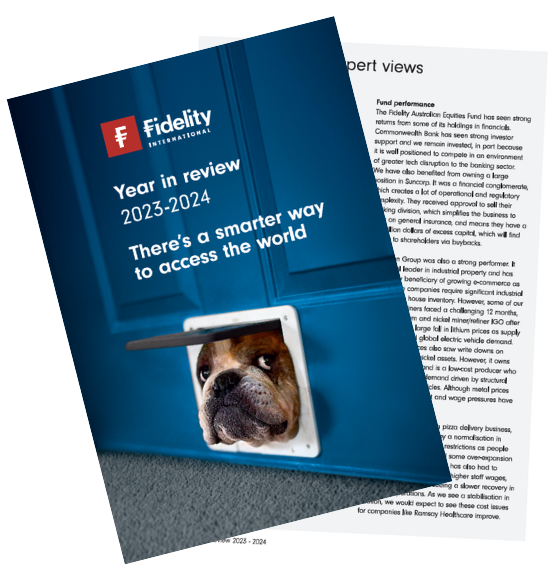The last 12 months has witnessed a wide divergence in sentiment across the Asia region. The artificial intelligence (AI) theme and pick up in AI infrastructure spending boosted technology heavy markets like Taiwan, and India rallied as investors bought into its economic development story. However, sentiment is quite exuberant, valuations in those markets are trading well above long-term averages and talk of risks to the investment opportunities are being somewhat ignored.
While Taiwan and India have led the region, China and Hong Kong continue to struggle, even after a strong but short-lived rebound in Q1 2024. Concerns over the health of the property market and weak domestic consumer sentiment remain and investors are not confident there will be enough policy support to drive a turnaround. Weak sentiment is reflected in low valuations, but this is partly justified as risks are elevated. However, this also creates some mis-priced opportunities and we have seen good companies with solid structural growth drivers being sold down.
Despite pockets of opportunity across the region, we expect the broader challenging macroeconomic environment to continue. We believe careful stock selection, underpinned by rigorous company research, can effectively mitigate areas of risk and successfully capitalise on the beneficiaries of the region’s long-term growth.
Fund performance
Over the last 12 months, the Fidelity Asia Fund has benefited from holding big positions in leading technology names like SK Hynix and Taiwan Semiconductor Manufacturing Company. Given the strong performance and high valuations, our position in technology has been brought down, as we are concerned that companies are spending on AI infrastructure, but will soon have to go through a period of implementing and integrating this into their businesses, and these risks are not priced in.
Conversely, our China exposure, especially in consumer-related areas, has lagged. Investor sentiment towards the consumer is weak, but any improvement in consumer sentiment could drive a material re-rating from low valuation levels. We are optimistic that a controlled stabilisation in the macro environment will eventually allow this thesis to play out. This could include more policy support for the country’s ailing property market, which we are beginning to see. Large overweights in the China consumer space, like those in advertising company Focus Media, fast-food business Yum China, and beverages producer Kweichow Moutai, have been impacted.
Looking ahead
As we look ahead, there are a few things that we believe should be positive for relative returns for the Fidelity Asia Fund:
- Rate cuts in the US: we expect significantly lower US interest rates, which would benefit stocks likes Techtronic Industries and BOC Aviation.
- China consumer picks up: this may help the stocks mentioned above. We have also added positions in sportswear company Anta, which is structurally growing with changing lifestyles and benefiting from the rise of domestic brands, and Galaxy Entertainment, which should benefit from a steady improvement in Macau visitations and increasing spend per visitor.
- The AI cycle shifts from the hype phase towards realisation or disappointment.
- India de-rates or fails to meet high expectations.
Or explore our other areas of focus here:
- Foreword - Lawrence Handon, Managing Director
- Australian equities - Paul Taylor, Head of Investments, Australia and Portfolio Manager, Fidelity Australian Equities Fund
- Global equities - James Abela and Maroun Younes, Co-Portfolio Managers, Fidelity Global Future Leaders strategies
- Global emerging markets - Amit Goel, Portfolio Manager, Fidelity Global Emerging Markets strategies
- Sustainable investing - Daniela Jaramillo, Head of Sustainable Investing

